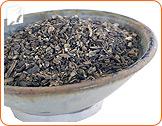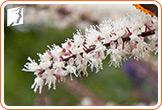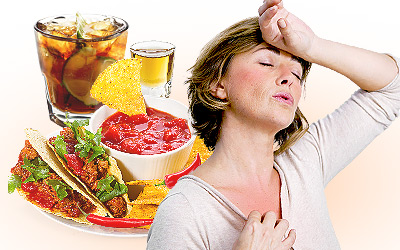Many women may be familiar with black cohosh for hot flashes. For those who aren't, black cohosh is an herb used to treat hot flashes and other menopause symptoms. Hot flashes affect nearly all women who are approaching menopause, and for most, they will continue through the entire transitional period. Alternative medications such as black cohosh are often used to reduce menopausal discomforts. This herb may not work for all women, and it can have some disadvantages if taken for too long.
Continue reading to discover more about black cohosh and hot flashes.
What Is Black Cohosh?
Black cohosh is a natural plant extract that is often used to fight hot flashes and other menopause symptoms. Although there is no clinical evidence to prove that it has a positive effect on symptoms, it is used by many women during menopause, and many of them have experienced significant relief.

Black cohosh is a treatment option for women who prefer not to take hormone-regulating herbal supplements or medication.
It can be taken in many forms, including capsules, tinctures, and tablets, and there is no specifically prescribed dosage. Any menopausal treatment, however, should be taken under the supervision of a healthcare professional.
Black Cohosh: A Phytoestrogenic Herb

Black cohosh is a phytoestrogenic herb. There are two types of herbal supplements for treating hot flashes: phytoestrogenic and hormone-regulating supplements. The former contain natural estrogen-like components produced by plants. They can lessen the symptoms of hormone imbalances by replacing some of the missing estrogen.
However, it is important to remember that black cohosh and other phytoestrogenic supplements may not be the best way to treat hot flashes, since these herbs add hormones to the body, which can cause it to become less efficient at producing its own estrogen.
Hormone-regulating supplements are a better option than black cohosh when it comes to long-term treatment for hot flashes. The reason for this is simple: they contain no estrogen, but instead nourish the endocrine glands to help them effectively produce more natural hormones. Because of the way hormone-regulating supplements work in the body, they are generally considered the safest and best way to naturally treat hot flashes.
More Information
On top of supplementation, making changes to your lifestyle is also recommended. Good diet and exercise habits are always the first step toward balancing hormones and reducing menopause symptoms. Click on the following link for more information about treatments for hot flashes.
Sources
- Leach, M.J. & Moore, V. (2012). Black cohosh (Cimicifuga spp.) for menopausal symptoms. The Cochrane Database of Systematic Reviews, 9, CD007244. doi: 10.1002/14651858.CD007244.pub2.
- National Health Service UK. (2015). Hot flushes: how to cope. Retrieved January 22, 2016, from http://www.nhs.uk/Livewell/menopause/Pages/hot-flushes.aspx
- Sikon, A. & Thacker, H. (2004). Treatment for Menopausal Hot Flashes. Cleveland Clinic Journal of Medicine, 71(7).
- Weir, E. (2004). Hot flashes ... in January. Canadian Medical Association Journal, 170(1), 39-40. Retrieved from http://www.ncbi.nlm.nih.gov/pmc/articles/PMC305309/


